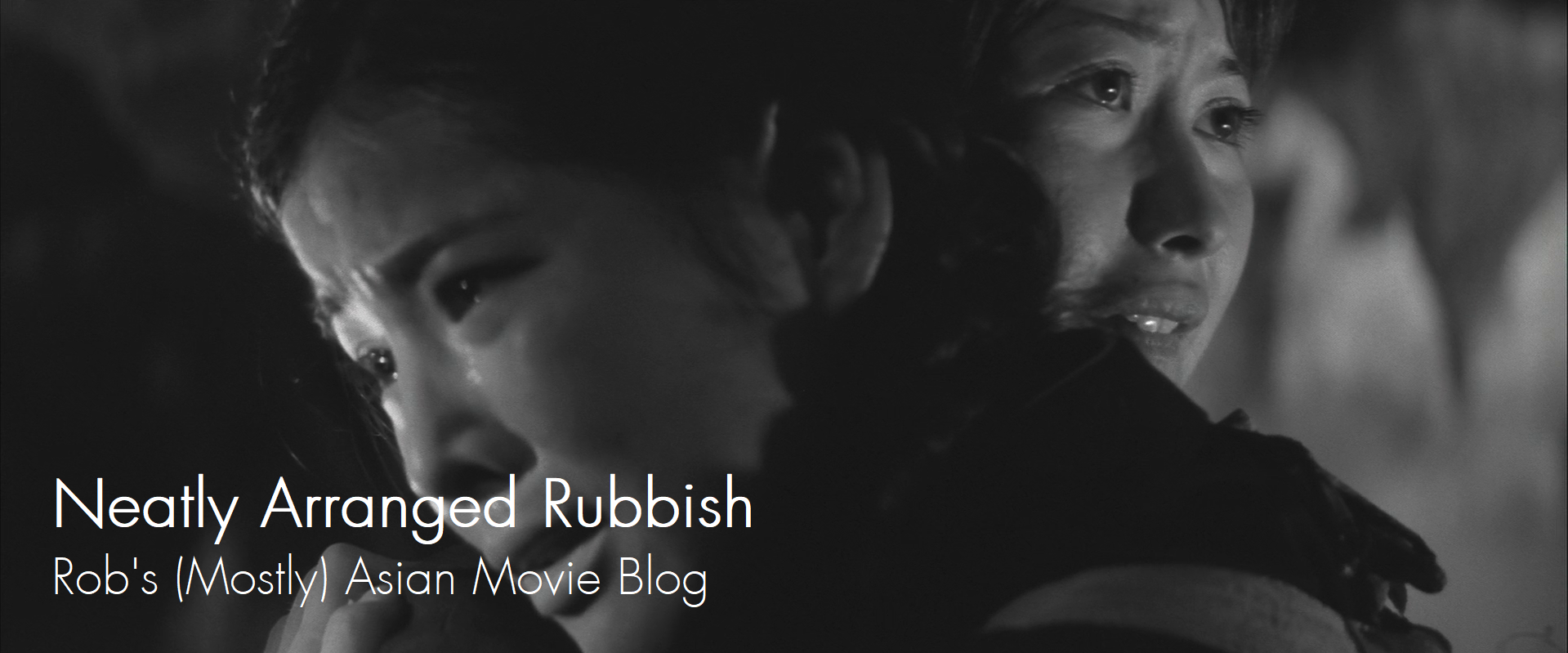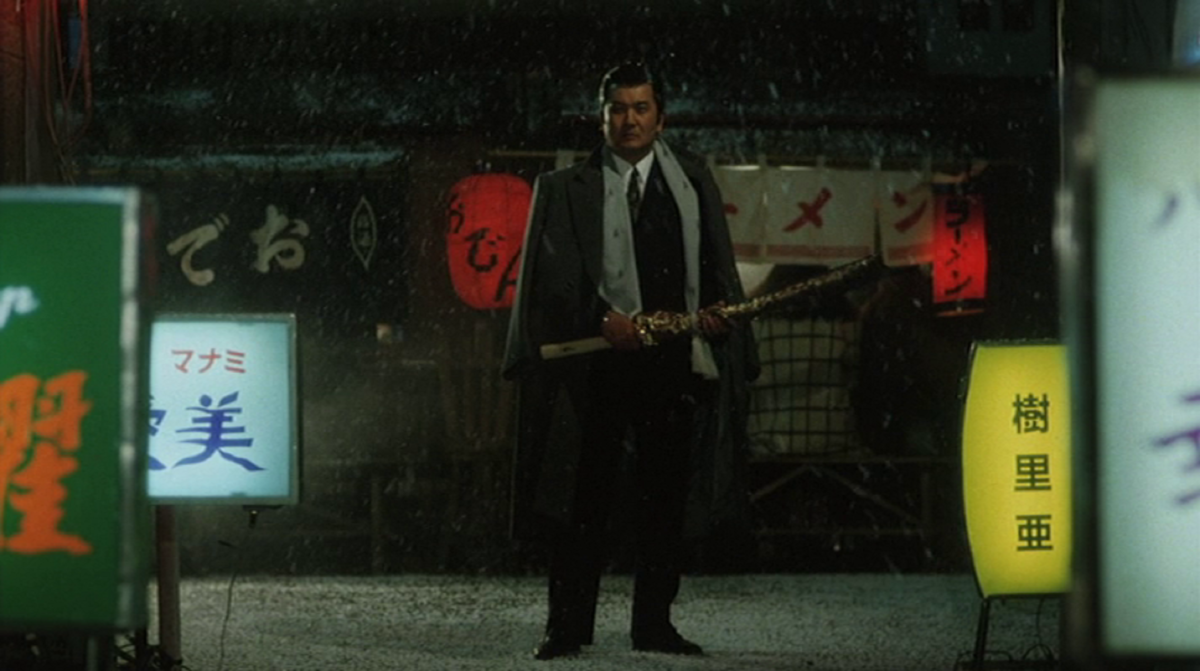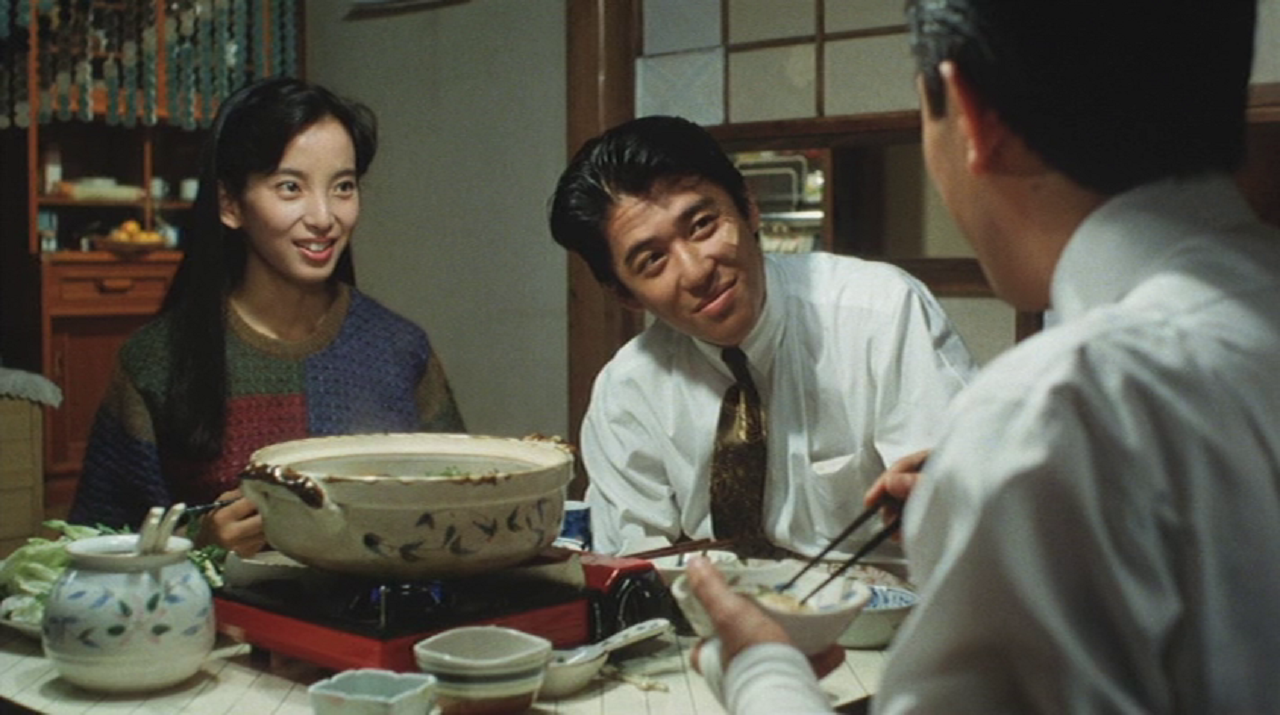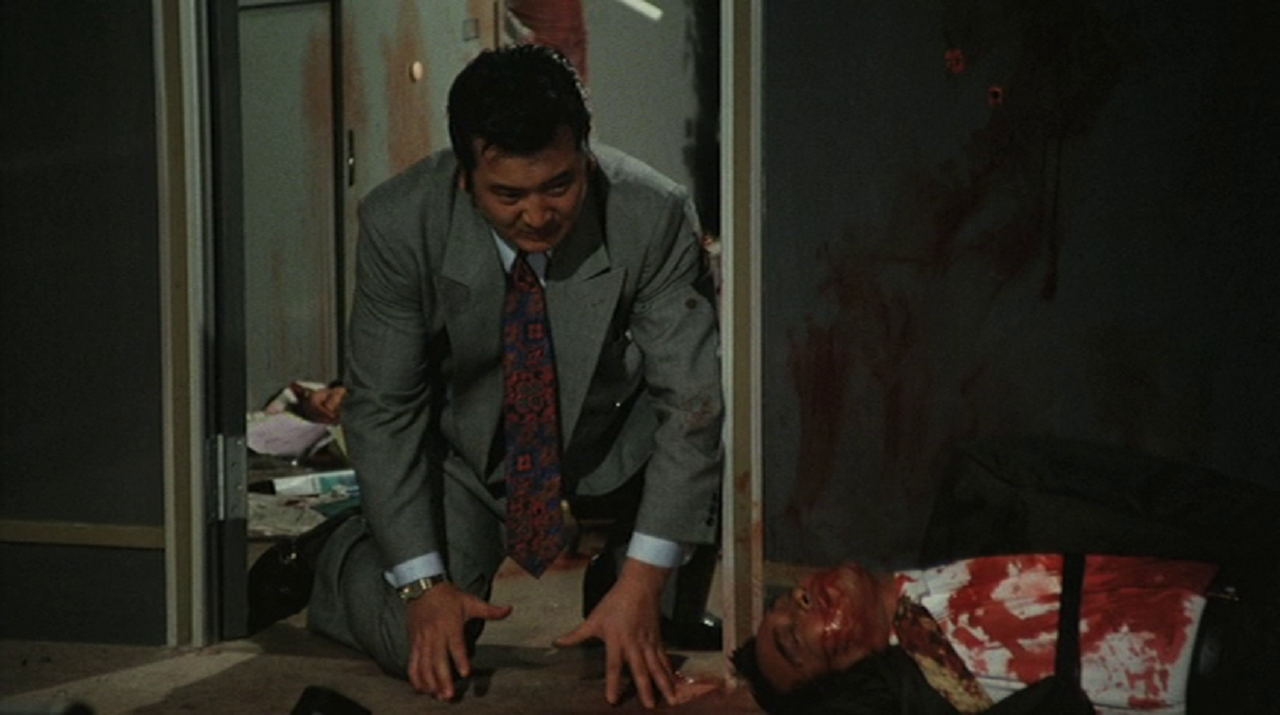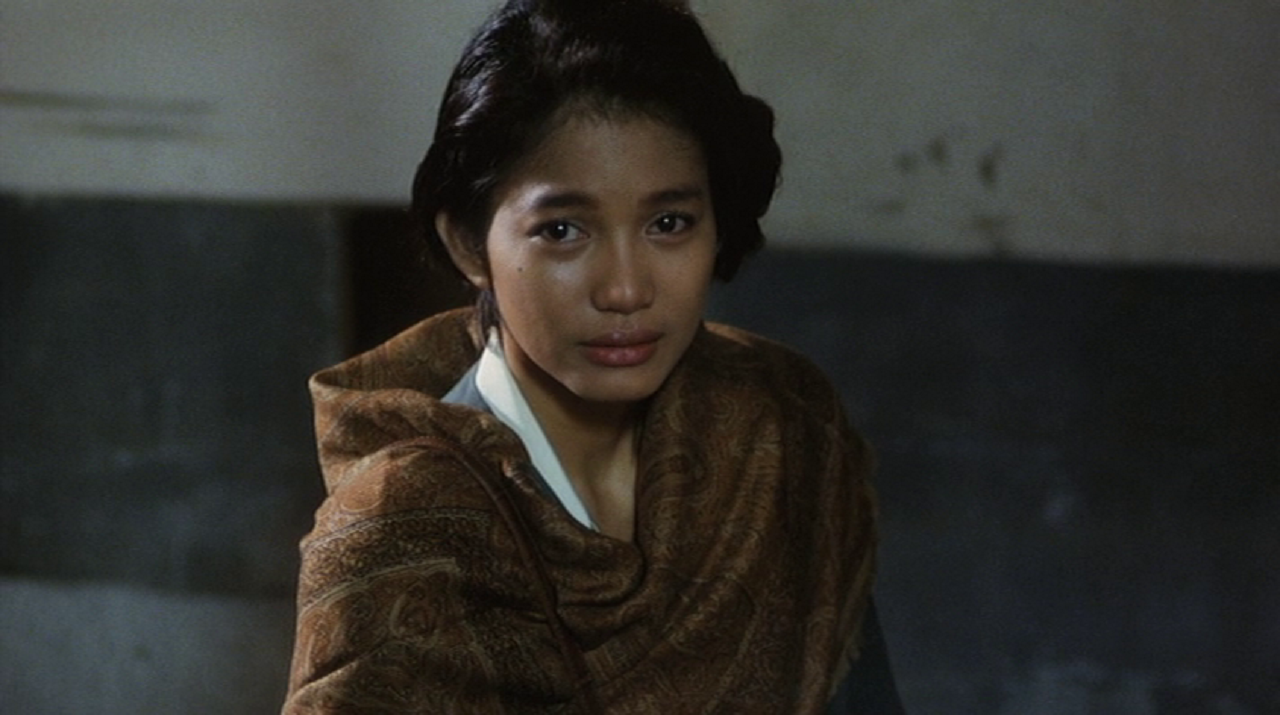Last Updated on October 17, 2020 by rob
When the boss of the veteran Kasabe union is attacked his loyal second-in-command Otaki (Akira Kobayashi) strikes back but soon discovers that their enemy is a formidable alliance of Yakuza gangs with an ambitious construction boss turned would be politician named Nakajima whose clout means he has the chief of police in his pocket. As violence between the two sides escalates Otaki’s old fashioned notions of honour are shaken when the other Yakuza families refuse to rally to his side. Advised to seek terms with his enemies Otaki refuses and he and his men await their fate.
This is an excellent Yakuza movie that cuts deeper and feels more detailed than those of the 1960’s and 70’s even as it covers familiar themes of duty and tradition in an age that has no use for such values. As Otaki, portly lead actor Akira Kobayashi – whom I remember as the dashingly slimline hero of Hasebe’s colourful comic book romp Black Tight Killers (1966) – is a stern but avuncular father figure to his men, ruthless to his enemies (there’s a great moment here where he seizes the opportunity to sneak alone into a petrol station to break the neck of an opponent) and he has an affection for his Philippino mistress Tomoko (Ruby Moreno) that feels heartfelt and authentic. In fact the relationship between these two is really the heart and soul of the movie – even over and above Otaki’s loyalty to his boss, or his friendship with Hondo (Takanori Jinnai) a former enemy just released from prison and eager to help in battle.
Tomoko’s unconditional love represents such innocence and purity in Otaki’s life and Ruby Moreno’s performance as the doting Tomoko so sincere that we very quickly come to care about these two and a pivotal scene in which vengeance falls to her character feels credible since the emotional bond between her and Otaki has been so indelibly established. Something else that impressed me about Izumi’s film is that it manages to both have its cake and eat it. Which is to say that it manages to romanticise these gangsters (when a chintzy pop ballad swells on the soundtrack as Otaki strides down a neon lit street carrying his late boss’s ceremonial sword intent on bloody revenge, it’s as stirring as it is corny) yet it is also quite unsentimental in showing how the bonds of loyalty between Otaki and his men amount to little more than misery and death.
In this respect I particularly liked the way the film gives generous space to three junior Kasabe members – Take, Shige and Nishi – two of whom suffer a brutal beating by their own men after inadvertently allowing a captured rival to kill himself and whom we’re taken aback to discover are just kids who haven’t even graduated high school. In domestic scenes of the trio drowning their sorrows or enjoying a dinner cooked by Shige’s wife, all three men bemoan the prospect of an upcoming war and what it means for them. At least Shige has a wife and baby on the way but when the police need a culprit to account for a murder by Otaki’s gang it’s Shige who as a junior member is chosen to take the rap. This waste of a young life driven by a misguided sense of obligation really resonates because we like Shige and can identify with his desire for a wife and family.
There are many characters here and much like some of the old Fukasaku movies A Legend of Turmoil is so awash with title cards introducing its heroes, villains and their job titles that you wonder how on earth you’re going to keep track of it all. But in practice the film proves so smoothly plotted that even if we might struggle with a name or two we can always tell the good guys and the bad guys apart. Director Seiji Izumi (whose only other film I’ve seen was 2006’s suffocatingly twee Departing Osaka Station) evokes a most effective sense of mystery and intrigue in the early stages as Otaki tries to find out – using a policeman friend named Kirino and an investigative journalist, Shibayama – who it is that’s targeting his firm. Once the truth comes out an escalating series of tit-for-tat skirmishes ramps up some very bloody violence.
A sequence where Otaki’s men cause a ruckus in a rivals club, terrifying the hostesses before breaking the owners arm and pulping the face of a servant, displays a gruesome attention to vicious detail. But the early action is as nothing compared to a climactic all out assault on the Kasabe office by machine gun toting Yakuza. This setpiece is a terrific piece of action staging because the office space is quite cramped. This is not the kind of shootout where characters blaze away at each other from a hundred yards away. Instead it’s brutal close quarters, take no prisoners stuff as Otaki’s men are shoved up against the nearest wall and pumped full of bullets at point blank range. The sheer amount of blood squibbery here is frankly awesome. I haven’t seen this many blood squibs going off this side of a Sam Peckinpah movie and one feels a genuine sense of regret at seeing faces we’ve gotten to recognise going down against an unbeatable enemy.
I think that’s why the film works as well as it does. It has all the intrigue, violence and action (and blood, especially blood!) that you could want but we do actually care about the Kasabe gang and root for Otaki to get his revenge even as we worry about what this means for him and Tomoko. Kobayashi’s engaging performance with its mixture of toughness and concern keeps us onside with his character (you can’t help feeling sorry for the guy when he reaches out to other Yakuza families for their help only to be brusquely rejected) and when he gives in to an ill-advised moment of compassion the result is predictable but nonetheless still a shock. I said earlier that the film’s view of loyalty between Otaki and those around him led to nothing but death. That’s true but the film’s surprising final scene (which involves another death) could actually just as easily be taken as a triumphant vindication of the loyalty inspired by Otaki. However you choose to view it this is a very satisfying Yakuza movie with emotionally involving performances (and as good as Kobayashi is, it’s Ruby Moreno’s soulful supporting turn you’ll likely most remember), a compelling story and a ton of bloodshed.
